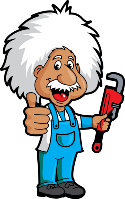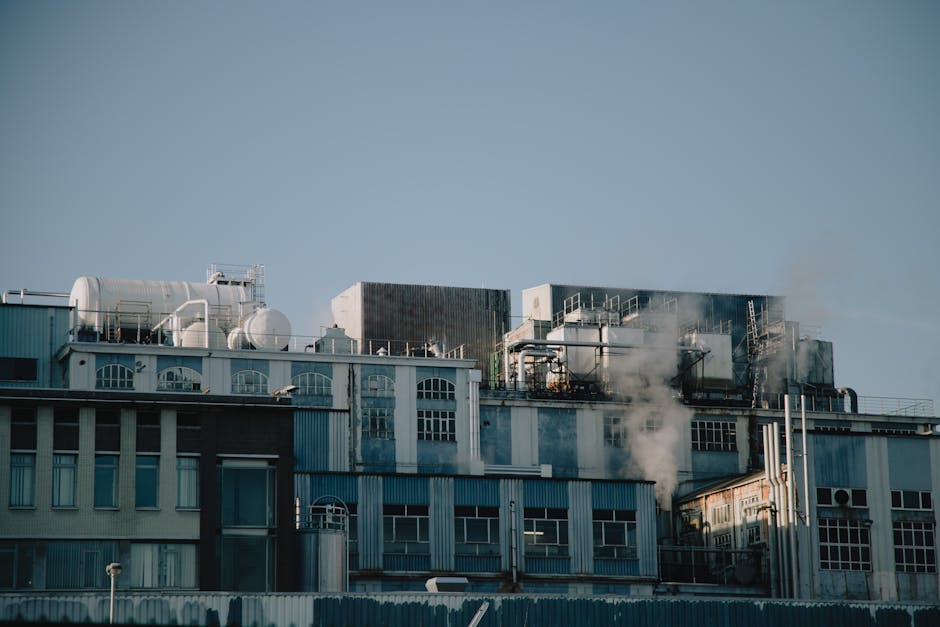Introduction to Gas Line Safety
Gas line safety should be a top priority in every household, yet it’s often overlooked until an emergency strikes. The truth is, maintaining your gas lines is not just about avoiding inconvenience; it’s about protecting your family from potential hazards. Gas leaks can lead to explosions, fires, and exposure to harmful gases. But fear not, with a few simple preventative measures, you can ensure your gas lines are secure and your home is safe. Always be aware of the smell of gas, which is often described as a rotten egg scent, as this is a clear indicator of a leak. Additionally, installing a carbon monoxide detector can alert you to invisible but equally dangerous gas leaks. Remember, taking care of your gas lines isn’t complicated; it’s about being vigilant and proactive. Stay safe by making gas line maintenance a regular part of your home care routine.
Recognizing the Signs of Gas Line Problems
When it comes to your gas lines, staying ahead of problems is key. You should know what to look out for to tackle issues before they turn into emergencies. First off, smell is a big giveaway. Gas companies add a rotten egg scent to natural gas, which has no smell, so it’s noticeable if there’s a leak. If you catch this odor, act immediately. Next, listen for a hissing or whistling sound near gas lines. This could mean gas is escaping from a small hole or crack. Also, look at your gas-powered appliances. If they’re not working as efficiently as before or if the flame is orange instead of blue, it might signal incomplete combustion, a serious issue. Vegetation dying or soil discoloration near your gas lines can also indicate leaks underground. Lastly, an unexpected rise in your gas bill could hint at a leak wasting gas. Paying attention to these signs can keep you and your home safe.
The Importance of Regular Gas Line Inspections
Regular gas line inspections are crucial to keep your home safe. Think of it this way, gas lines are like the veins of your house, pumping essential energy but potentially harmful if damaged. Ignoring them could lead to leaks, which not only spike your energy bill but could also pose serious health and safety risks. Imagine sleeping while a small gas leak fills your house—scary, right? That’s why professionals suggest inspecting your gas lines at least once a year. They check for corrosion, damage, and leaks. This isn’t just a safety measure; it also ensures your gas appliances operate efficiently. Remember, prevention is cheaper than repair. A small investment in inspections can save you from the massive cost and headache of dealing with emergencies or property damage. So, mark it on your calendar and make gas line inspections a regular part of your home maintenance routine.
DIY: Basic Gas Line Maintenance Tips
Keeping your gas lines in check is crucial for safety and efficiency. Here are some straightforward tips to help you prevent gas leaks and potential emergencies. First, get to know where your gas lines are. This might sound basic, but knowing their exact route can help you avoid accidentally hitting them during any home projects. Next, regularly check your gas line connections, especially those connected to your appliances. Make it a habit to look for any signs of wear, tear, or corrosion. If something doesn’t look right, don’t try to fix it yourself—call a professional. It’s also important to listen for any unusual hissing or whistling sounds near gas lines. This could indicate a small leak. Don’t ignore it. Another simple yet effective tip is to keep the area around your gas meter clear. Don’t let trash or plants block access. This is not just for safety during routine checks; in an emergency, quick access could be a lifesaver. Lastly, install a gas detector in your home. They’re not expensive and can alert you to leaks you can’t see or smell. If you ever suspect a gas leak, remember, don’t flip any switches or use anything that could ignite the gas. Just get out and call for help from a safe distance. These steps are easy but can make a big difference in keeping your home safe.
When to Call a Professional for Gas Line Repair
Knowing when to call a pro for gas line repair is key for your safety. If you notice a strong gas smell, that’s a big red flag. A hissing or whistling sound near your gas lines is also a sign something’s off. Don’t mess around if plants around your gas line suddenly die – that indicates a leak. Also, if your gas bill spikes without a clear reason, you might have a hidden leak. In any of these cases, shut off your gas if you can safely do it and call a professional right away. It’s not a DIY job; playing it safe and getting an expert on the case is crucial for your safety and peace of mind.
The Role of Professionals in Preventative Maintenance
When we talk about gas lines and safety, the role of professionals can’t be overstated. These experts have the training, experience, and tools crucial for inspecting and maintaining gas lines correctly. Trying to DIY your gas line maintenance is risky business. It’s not just about the potential for leaks; improper handling can lead to serious emergencies. So, what exactly do these pros do? First, they check for leaks using advanced equipment. This isn’t something you can do with just any tool lying around your house. They also inspect the physical condition of the pipes, looking for signs of wear and tear that could become problems later. Another key part of their job is to ensure that your gas lines comply with local safety regulations. These codes are there for a reason, and not keeping up can mean fines or, worse, accidents. Long story short, rely on trained professionals for gas line maintenance. They’re the ones who can ensure everything runs safely and smoothly, saving you from potential headaches, or disasters, down the road.
How to Choose the Right Service for Gas Line Repair
Choosing the right service for gas line repair isn’t something you should do in a rush. Your safety and that of your home depend on making a wise choice. First, look for a company that’s licensed and insured. This is non-negotiable. A licensed company knows the ins and outs of gas lines. If they’re insured, you won’t be left in the cold if an accident happens. Next, experience matters. Pick a service with a solid track record of dealing with gas lines. Reviews can be a goldmine of information. Check out what other people are saying online. But take it with a grain of salt. Not all reviews are genuine. Word of mouth can also lead you to trusted professionals. Ask your neighbors or friends who they’ve used and would recommend. Lastly, don’t ignore your gut. After talking to a potential service, you should feel confident in their ability to get the job done. If something feels off, keep looking. Your peace of mind is worth it. Choosing carefully today can save you from trouble down the road.
Preparing Your Home for Professional Gas Line Maintenance
Before the pros step in to keep your gas lines in top shape, you’ve got homework to do. Yep, a bit of prep makes the maintenance visit smoother and quicker. First up, clear the path. Ensure the area around your gas lines is free from clutter. We’re talking lawn mowers, bikes, and garden hoses. These need to be out of the way. Next, know where your gas lines run. This isn’t a treasure hunt; knowing this speeds things up. If you’ve got pets, secure them. While Fido might be friendly, he could be a distraction or, worse, get hurt. Finally, have your records ready. Any past maintenance work, strange behaviors of your gas system, or smells you’ve noticed? Share them. This isn’t just busywork; it helps the professionals do their job better, ensuring your home stays safe and your gas lines well-maintained.
The Long-Term Benefits of Preventative Gas Line Maintenance
Keeping your gas lines in check is not just about avoiding the emergency call to the plumber; it’s about playing the long game for your home’s safety and your wallet. Think of preventative gas line maintenance as a health check-up but for your house. Just like you’d see a doctor to prevent illness, checking on your gas lines helps prevent leaks and breakdowns. Here’s the deal: spotting issues early can prevent costly repairs down the line. We’re talking major savings. Plus, a well-maintained gas system means you’re not losing money on gas leaks you can’t even see—those little leaks add up on your bill. And let’s not forget the big one: safety. Gas leaks are serious business, leading to health risks and even home fires. By keeping your gas lines in good shape, you’re keeping your home safe and sound. So, invest a little now in regular maintenance. Your future self, with a safe home and a healthier bank account, will thank you.
Summary and Final Thoughts on Avoiding Gas Line Emergencies
Knowing how to prevent gas line emergencies is crucial for keeping your home safe. Simple, effective measures can significantly reduce the risk of gas leaks and ensure that everything runs smoothly. Remember, always get regular inspections from a professional to spot any potential issues early on. Similarly, be aware of the signs of a leak, like a strange smell or a hissing noise, and act immediately if you notice any. Installing a gas detector can also serve as an early warning system, alerting you to any leaks before they become dangerous. By following these guidelines, not only do you protect your family and home, but you also save yourself from potentially huge repair bills down the line. Staying informed and cautious is key. Safe, routine checks and knowing how to react can make all the difference in preventing gas line emergencies.





